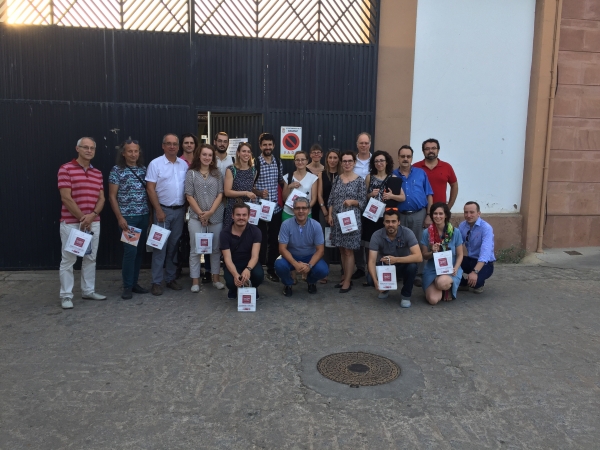In the fight against climate change, agriculture plays a fundamental role, one recognized in the European Union's approval of the Green Pact and in the reform of the Common Agricultural Policy (CAP), whose horizon calls for, by 2030, 20% of European agriculture being organic, and 50% of polluting emissions from agriculture being eliminated.
In this context, the Provide research project, comprised of 14 partners from 13 different EU countries, and in which the University of Córdoba has participated, focused on researching the provisioning of public assets generated by agriculture and forestry, and endowing public policies with an adequate framework that makes it possible to bolster the production of these activities in exchange for rewards. As explained by the researcher heading up the UCO project, José Antonio Gómez-Limón, "agriculture captures CO2, prevents erosion, and favors biodiversity through ecological practices, but does not receive any compensation in return."
Hence, the objective of this initiative was to find transferable solutions for the smart production of public assets. In Gómez Limón's view, growers, who are furnishing society as a whole with a set of benefits "must be compensated for the well-being they generate." For this reason, "the project advocates for issuing aid based on what they offer."
Specifically, the UCO focused on the study of Andalusian mountain olive groves, mostly located in the central, north and northeast parts of the region, an agricultural system that, despite favoring biodiversity and facilitating the conservation of soils and mitigating climate change, runs the risk of "being abandoned in the coming years, due to its low profitability", the researcher explained. Along this line, after the study carried out within the framework of the project, a proposal for an environmental program was advanced for mountain olive groves, a traditional crop for which the Junta de Andalucía has demanded a specific approach.
The project point to the need to compensate the farming community for the goods they provide so that they can continue with their activity. Although there are agricultural subsidies, explained Gómez-Limón, "they do not take into account the benefits that each farmer provides society as a whole." Thus, the initiative calls for the creation of funding that now, with the new CAP, "will materialize through eco-schemes and Agro-environmental Programs".
These "eco-schemes" are packages of agricultural practices compatible with the environment, and those who subscribe to them “will receive specific funding”. "In this way, specific compensation will be given, for example, to herbaceous agriculture featuring sustainable tillage, as this activity promotes CO2 capture, and prevents erosion", explained the researcher. Agri-environmental programs, meanwhile, will make it possible to give incentives to those in the agricultural community who meet certain environmental requirements.
The PROVIDE project - “PROVIding smart DElivery of public goods by EU agriculture and forestry” (H2020-ISIB-2014-633838) was funded by the European Union through the H2020-ISIB-2014-2 call.
Report financed by the CONSOLIDA-UCO ECT2020-000810 project through the Europe Networks and Managers - Europe Technological Centers 2020 call.


